afterLoad (456.22KB) (7.5ms)
afterInitialise (1.27MB) (57.27ms)
afterRoute (840.56KB) (25.18ms)
beforeRenderComponent com_tags (20.62KB) (244μs)
afterRenderComponent com_tags (1.4MB) (147ms)
afterDispatch (27.42KB) (3.63ms)
beforeRenderRawModule mod_articles_category (READ MORE...) (439.86KB) (21.46ms)
Before Access::preloadComponents (all components) (50.9KB) (1.54ms)
After Access::preloadComponents (all components) (103.05KB) (623μs)
Before Access::getAssetRules (id:8 name:com_content) (840B) (16μs)
After Access::getAssetRules (id:8 name:com_content) (7.05KB) (41μs)
afterRenderRawModule mod_articles_category (READ MORE...) (1.76KB) (218ms)
beforeRenderRawModule mod_custom (BOOST YOUR IMMUNE DEFENSE) (6.45KB) (42μs)
afterRenderRawModule mod_custom (BOOST YOUR IMMUNE DEFENSE) (3.8KB) (211μs)
beforeRenderRawModule mod_tags_popular (Search) (2.36KB) (15μs)
afterRenderRawModule mod_tags_popular (Search) (16.23KB) (332ms)
beforeRenderRawModule mod_custom (Get additionel and more detailed knowledge ) (816B) (33μs)
afterRenderRawModule mod_custom (Get additionel and more detailed knowledge ) (1.55KB) (2.08ms)
beforeRenderRawModule mod_custom (Overview of vitamins, minerals, and essential fatty acids) (768B) (22μs)
afterRenderRawModule mod_custom (Overview of vitamins, minerals, and essential fatty acids) (960B) (33μs)
beforeRenderRawModule mod_custom (Q10 goes by many names) (608B) (11μs)
afterRenderRawModule mod_custom (Q10 goes by many names) (928B) (22μs)
beforeRenderRawModule mod_custom (Check this before you buy a Q10 product) (752B) (9μs)
afterRenderRawModule mod_custom (Check this before you buy a Q10 product) (944B) (19μs)
beforeRenderRawModule mod_custom (Are you taking supplements) (736B) (9μs)
afterRenderRawModule mod_custom (Are you taking supplements) (1.03KB) (18μs)
beforeRenderRawModule mod_custom (Weight loss that works) (736B) (9μs)
afterRenderRawModule mod_custom (Weight loss that works) (1.03KB) (18μs)
beforeRenderRawModule mod_custom (Antiaging) (720B) (8μs)
afterRenderRawModule mod_custom (Antiaging) (912B) (18μs)
beforeRenderRawModule mod_menu (Are you getting enough vitamins and minerals?) (2.5KB) (11μs)
afterRenderRawModule mod_menu (Are you getting enough vitamins and minerals?) (22.39KB) (516μs)
beforeRenderRawModule mod_menu (The key to increased well-being) (736B) (19μs)
afterRenderRawModule mod_menu (The key to increased well-being) (17.83KB) (1.4ms)
beforeRenderRawModule mod_menu (Did you know.....) (720B) (23μs)
afterRenderRawModule mod_menu (Did you know.....) (25.52KB) (358μs)
beforeRenderRawModule mod_custom (Useful Links) (1.06KB) (15μs)
afterRenderRawModule mod_custom (Useful Links) (1.02KB) (33μs)
beforeRenderRawModule mod_custom (Chronic fatigue tied Alan to his bed but Q10 capsules saved him:) (244.28KB) (6.35ms)
afterRenderRawModule mod_custom (Chronic fatigue tied Alan to his bed but Q10 capsules saved him:) (1.06KB) (2.07ms)
beforeRenderModule mod_custom (Chronic fatigue tied Alan to his bed but Q10 capsules saved him:) (768B) (6μs)
afterRenderModule mod_custom (Chronic fatigue tied Alan to his bed but Q10 capsules saved him:) (1.3KB) (82μs)
beforeRenderRawModule mod_custom (Cholesterol-lowering without side effects:) (368B) (20μs)
afterRenderRawModule mod_custom (Cholesterol-lowering without side effects:) (1.06KB) (28μs)
beforeRenderModule mod_custom (Cholesterol-lowering without side effects:) (752B) (2μs)
afterRenderModule mod_custom (Cholesterol-lowering without side effects:) (1.28KB) (31μs)
beforeRenderModule mod_articles_category (READ MORE...) (20.82KB) (390μs)
afterRenderModule mod_articles_category (READ MORE...) (1.25KB) (41μs)
beforeRenderModule mod_custom (BOOST YOUR IMMUNE DEFENSE) (6.81KB) (13μs)
afterRenderModule mod_custom (BOOST YOUR IMMUNE DEFENSE) (1.28KB) (25μs)
beforeRenderModule mod_tags_popular (Search) (1.98KB) (12μs)
afterRenderModule mod_tags_popular (Search) (1.27KB) (22μs)
beforeRenderModule mod_custom (Get additionel and more detailed knowledge ) (1.17KB) (10μs)
afterRenderModule mod_custom (Get additionel and more detailed knowledge ) (1.3KB) (22μs)
beforeRenderModule mod_custom (Overview of vitamins, minerals, and essential fatty acids) (384B) (9μs)
afterRenderModule mod_custom (Overview of vitamins, minerals, and essential fatty acids) (1.31KB) (22μs)
beforeRenderModule mod_custom (Q10 goes by many names) (208B) (8μs)
afterRenderModule mod_custom (Q10 goes by many names) (1.27KB) (21μs)
beforeRenderModule mod_custom (Check this before you buy a Q10 product) (352B) (9μs)
afterRenderModule mod_custom (Check this before you buy a Q10 product) (1.28KB) (21μs)
beforeRenderModule mod_custom (Are you taking supplements) (352B) (8μs)
afterRenderModule mod_custom (Are you taking supplements) (1.28KB) (21μs)
beforeRenderModule mod_custom (Weight loss that works) (336B) (8μs)
afterRenderModule mod_custom (Weight loss that works) (1.27KB) (22μs)
beforeRenderModule mod_custom (Antiaging) (336B) (8μs)
afterRenderModule mod_custom (Antiaging) (3.77KB) (21μs)
beforeRenderModule mod_menu (Are you getting enough vitamins and minerals?) (2.13KB) (11μs)
afterRenderModule mod_menu (Are you getting enough vitamins and minerals?) (1.3KB) (21μs)
beforeRenderModule mod_menu (The key to increased well-being) (352B) (10μs)
afterRenderModule mod_menu (The key to increased well-being) (1.28KB) (21μs)
beforeRenderModule mod_menu (Did you know.....) (336B) (2.14ms)
afterRenderModule mod_menu (Did you know.....) (1.27KB) (68μs)
beforeRenderModule mod_custom (Useful Links) (1.44KB) (15μs)
afterRenderModule mod_custom (Useful Links) (1.27KB) (29μs)
beforeRenderRawModule mod_menu (Main Menu - English) (29.14KB) (738μs)
afterRenderRawModule mod_menu (Main Menu - English) (186.95KB) (3.61ms)
beforeRenderModule mod_menu (Main Menu - English) (720B) (6μs)
afterRenderModule mod_menu (Main Menu - English) (4.86KB) (62μs)
beforeRenderRawModule mod_languages (Sprogskift) (3.94KB) (21μs)
afterRenderRawModule mod_languages (Sprogskift) (22.39KB) (4.29ms)
beforeRenderModule mod_languages (Sprogskift) (720B) (5μs)
afterRenderModule mod_languages (Sprogskift) (5.31KB) (3.05ms)
beforeRenderRawModule mod_finder () (6.34KB) (19μs)
afterRenderRawModule mod_finder () (134.09KB) (10.42ms)
beforeRenderModule mod_finder () (704B) (7μs)
afterRenderModule mod_finder () (3.29KB) (45μs)
beforeRenderRawModule mod_custom () (6.62KB) (202μs)
afterRenderRawModule mod_custom () (22.66KB) (8.59ms)
beforeRenderModule mod_custom () (704B) (5μs)
afterRenderModule mod_custom () (1.23KB) (56μs)
beforeRenderRawModule mod_menu (Main Menu - English) (5.07KB) (105μs)
afterRenderRawModule mod_menu (Main Menu - English) (6.3KB) (791μs)
beforeRenderModule mod_menu (Main Menu - English) (720B) (3μs)
afterRenderModule mod_menu (Main Menu - English) (1.25KB) (53μs)
beforeRenderRawModule mod_languages (Sprogskift Mobil) (912B) (21μs)
afterRenderRawModule mod_languages (Sprogskift Mobil) (3.89KB) (1.73ms)
beforeRenderModule mod_languages (Sprogskift Mobil) (720B) (6μs)
afterRenderModule mod_languages (Sprogskift Mobil) (1.27KB) (43μs)
beforeRenderRawModule mod_finder () (2.3KB) (12μs)
afterRenderRawModule mod_finder () (6.29KB) (8.09ms)
beforeRenderModule mod_finder () (704B) (5μs)
afterRenderModule mod_finder () (1.23KB) (51μs)
beforeRenderRawModule mod_custom () (8.66KB) (188μs)
afterRenderRawModule mod_custom () (904B) (139μs)
beforeRenderModule mod_custom () (704B) (3μs)
afterRenderModule mod_custom () (2.43KB) (25μs)
beforeRenderRawModule mod_custom () (688B) (82μs)
afterRenderRawModule mod_custom () (896B) (92μs)
beforeRenderModule mod_custom () (704B) (3μs)
afterRenderModule mod_custom () (2.71KB) (21μs)
afterRender (244.95KB) (14.9ms)
| 1 x afterRenderRawModule mod_tags_popular (Search) (16.23KB) (37.37%) | 332.13ms |
| 1 x afterRenderRawModule mod_articles_category (READ MORE...) (1.76KB) (24.49%) | 217.60ms |
| 1 x afterRenderComponent com_tags (1.4MB) (16.53%) | 146.90ms |
| 1 x afterInitialise (1.27MB) (6.44%) | 57.27ms |
| 1 x afterRoute (840.56KB) (2.83%) | 25.18ms |
| 1 x beforeRenderRawModule mod_articles_category (READ MORE...) (439.86KB) (2.42%) | 21.46ms |
| 1 x afterRender (244.95KB) (1.68%) | 14.90ms |
| 1 x afterRenderRawModule mod_finder () (134.09KB) (1.17%) | 10.42ms |
| 1 x afterRenderRawModule mod_custom () (22.66KB) (0.97%) | 8.59ms |
| 1 x afterRenderRawModule mod_finder () (6.29KB) (0.91%) | 8.09ms |
| 1 x afterLoad (456.22KB) (0.84%) | 7.50ms |
| 1 x beforeRenderRawModule mod_custom (Chronic fatigue tied Alan to his bed but Q10 capsules saved him:) (244.28KB) (0.71%) | 6.35ms |
| 1 x afterRenderRawModule mod_languages (Sprogskift) (22.39KB) (0.48%) | 4.29ms |
| 1 x afterDispatch (27.42KB) (0.41%) | 3.63ms |
| 1 x afterRenderRawModule mod_menu (Main Menu - English) (186.95KB) (0.41%) | 3.61ms |
| 1 x afterRenderModule mod_languages (Sprogskift) (5.31KB) (0.34%) | 3.05ms |
| 1 x beforeRenderModule mod_menu (Did you know.....) (336B) (0.24%) | 2.14ms |
| 1 x afterRenderRawModule mod_custom (Get additionel and more detailed knowledge ) (1.55KB) (0.23%) | 2.08ms |
| 1 x afterRenderRawModule mod_custom (Chronic fatigue tied Alan to his bed but Q10 capsules saved him:) (1.06KB) (0.23%) | 2.07ms |
| 1 x afterRenderRawModule mod_languages (Sprogskift Mobil) (3.89KB) (0.19%) | 1.73ms |
| 1 x Before Access::preloadComponents (all components) (50.9KB) (0.17%) | 1.54ms |
| 1 x afterRenderRawModule mod_menu (The key to increased well-being) (17.83KB) (0.16%) | 1.40ms |
| 1 x afterRenderRawModule mod_menu (Main Menu - English) (6.3KB) (0.09%) | 791μs |
| 1 x beforeRenderRawModule mod_menu (Main Menu - English) (29.14KB) (0.08%) | 738μs |
| 1 x After Access::preloadComponents (all components) (103.05KB) (0.07%) | 623μs |
| 1 x afterRenderRawModule mod_menu (Are you getting enough vitamins and minerals?) (22.39KB) (0.06%) | 516μs |
| 1 x beforeRenderModule mod_articles_category (READ MORE...) (20.82KB) (0.04%) | 390μs |
| 1 x afterRenderRawModule mod_menu (Did you know.....) (25.52KB) (0.04%) | 358μs |
| 1 x beforeRenderComponent com_tags (20.62KB) (0.03%) | 244μs |
| 1 x afterRenderRawModule mod_custom (BOOST YOUR IMMUNE DEFENSE) (3.8KB) (0.02%) | 211μs |
| 1 x beforeRenderRawModule mod_custom () (6.62KB) (0.02%) | 202μs |
| 1 x beforeRenderRawModule mod_custom () (8.66KB) (0.02%) | 188μs |
| 1 x afterRenderRawModule mod_custom () (904B) (0.02%) | 139μs |
| 1 x beforeRenderRawModule mod_menu (Main Menu - English) (5.07KB) (0.01%) | 105μs |
| 1 x afterRenderRawModule mod_custom () (896B) (0.01%) | 92μs |
| 1 x afterRenderModule mod_custom (Chronic fatigue tied Alan to his bed but Q10 capsules saved him:) (1.3KB) (0.01%) | 82μs |
| 1 x beforeRenderRawModule mod_custom () (688B) (0.01%) | 82μs |
| 1 x afterRenderModule mod_menu (Did you know.....) (1.27KB) (0.01%) | 68μs |
| 1 x afterRenderModule mod_menu (Main Menu - English) (4.86KB) (0.01%) | 62μs |
| 1 x afterRenderModule mod_custom () (1.23KB) (0.01%) | 56μs |
| 1 x afterRenderModule mod_menu (Main Menu - English) (1.25KB) (0.01%) | 53μs |
| 1 x afterRenderModule mod_finder () (1.23KB) (0.01%) | 51μs |
| 1 x afterRenderModule mod_finder () (3.29KB) (0.01%) | 45μs |
| 1 x afterRenderModule mod_languages (Sprogskift Mobil) (1.27KB) (0%) | 43μs |
| 1 x beforeRenderRawModule mod_custom (BOOST YOUR IMMUNE DEFENSE) (6.45KB) (0%) | 42μs |
| 1 x After Access::getAssetRules (id:8 name:com_content) (7.05KB) (0%) | 41μs |
| 1 x afterRenderModule mod_articles_category (READ MORE...) (1.25KB) (0%) | 41μs |
| 1 x beforeRenderRawModule mod_custom (Get additionel and more detailed knowledge ) (816B) (0%) | 33μs |
| 1 x afterRenderRawModule mod_custom (Useful Links) (1.02KB) (0%) | 33μs |
| 1 x afterRenderRawModule mod_custom (Overview of vitamins, minerals, and essential fatty acids) (960B) (0%) | 33μs |
| 1 x afterRenderModule mod_custom (Cholesterol-lowering without side effects:) (1.28KB) (0%) | 31μs |
| 1 x afterRenderModule mod_custom (Useful Links) (1.27KB) (0%) | 29μs |
| 1 x afterRenderRawModule mod_custom (Cholesterol-lowering without side effects:) (1.06KB) (0%) | 28μs |
| 1 x afterRenderModule mod_custom (BOOST YOUR IMMUNE DEFENSE) (1.28KB) (0%) | 25μs |
| 1 x afterRenderModule mod_custom () (2.43KB) (0%) | 25μs |
| 1 x beforeRenderRawModule mod_menu (Did you know.....) (720B) (0%) | 23μs |
| 1 x beforeRenderRawModule mod_custom (Overview of vitamins, minerals, and essential fatty acids) (768B) (0%) | 22μs |
| 1 x afterRenderRawModule mod_custom (Q10 goes by many names) (928B) (0%) | 22μs |
| 1 x afterRenderModule mod_tags_popular (Search) (1.27KB) (0%) | 22μs |
| 1 x afterRenderModule mod_custom (Get additionel and more detailed knowledge ) (1.3KB) (0%) | 22μs |
| 1 x afterRenderModule mod_custom (Overview of vitamins, minerals, and essential fatty acids) (1.31KB) (0%) | 22μs |
| 1 x afterRenderModule mod_custom (Weight loss that works) (1.27KB) (0%) | 22μs |
| 1 x beforeRenderRawModule mod_languages (Sprogskift) (3.94KB) (0%) | 21μs |
| 1 x afterRenderModule mod_custom (Q10 goes by many names) (1.27KB) (0%) | 21μs |
| 1 x afterRenderModule mod_custom (Check this before you buy a Q10 product) (1.28KB) (0%) | 21μs |
| 1 x afterRenderModule mod_custom (Are you taking supplements) (1.28KB) (0%) | 21μs |
| 1 x afterRenderModule mod_custom (Antiaging) (3.77KB) (0%) | 21μs |
| 1 x afterRenderModule mod_menu (Are you getting enough vitamins and minerals?) (1.3KB) (0%) | 21μs |
| 1 x afterRenderModule mod_menu (The key to increased well-being) (1.28KB) (0%) | 21μs |
| 1 x beforeRenderRawModule mod_languages (Sprogskift Mobil) (912B) (0%) | 21μs |
| 1 x afterRenderModule mod_custom () (2.71KB) (0%) | 21μs |
| 1 x beforeRenderRawModule mod_custom (Cholesterol-lowering without side effects:) (368B) (0%) | 20μs |
| 1 x afterRenderRawModule mod_custom (Check this before you buy a Q10 product) (944B) (0%) | 19μs |
| 1 x beforeRenderRawModule mod_menu (The key to increased well-being) (736B) (0%) | 19μs |
| 1 x beforeRenderRawModule mod_finder () (6.34KB) (0%) | 19μs |
| 1 x afterRenderRawModule mod_custom (Antiaging) (912B) (0%) | 18μs |
| 1 x afterRenderRawModule mod_custom (Are you taking supplements) (1.03KB) (0%) | 18μs |
| 1 x afterRenderRawModule mod_custom (Weight loss that works) (1.03KB) (0%) | 18μs |
| 1 x Before Access::getAssetRules (id:8 name:com_content) (840B) (0%) | 16μs |
| 1 x beforeRenderRawModule mod_tags_popular (Search) (2.36KB) (0%) | 15μs |
| 1 x beforeRenderRawModule mod_custom (Useful Links) (1.06KB) (0%) | 15μs |
| 1 x beforeRenderModule mod_custom (Useful Links) (1.44KB) (0%) | 15μs |
| 1 x beforeRenderModule mod_custom (BOOST YOUR IMMUNE DEFENSE) (6.81KB) (0%) | 13μs |
| 1 x beforeRenderModule mod_tags_popular (Search) (1.98KB) (0%) | 12μs |
| 2 x beforeRenderModule mod_finder () (704B) (0%) | 12μs |
| 1 x beforeRenderRawModule mod_finder () (2.3KB) (0%) | 12μs |
| 1 x beforeRenderRawModule mod_custom (Q10 goes by many names) (608B) (0%) | 11μs |
| 1 x beforeRenderRawModule mod_menu (Are you getting enough vitamins and minerals?) (2.5KB) (0%) | 11μs |
| 1 x beforeRenderModule mod_menu (Are you getting enough vitamins and minerals?) (2.13KB) (0%) | 11μs |
| 3 x beforeRenderModule mod_custom () (704B) (0%) | 11μs |
| 1 x beforeRenderModule mod_custom (Get additionel and more detailed knowledge ) (1.17KB) (0%) | 10μs |
| 1 x beforeRenderModule mod_menu (The key to increased well-being) (352B) (0%) | 10μs |
| 1 x beforeRenderRawModule mod_custom (Are you taking supplements) (736B) (0%) | 9μs |
| 1 x beforeRenderRawModule mod_custom (Weight loss that works) (736B) (0%) | 9μs |
| 1 x beforeRenderModule mod_custom (Overview of vitamins, minerals, and essential fatty acids) (384B) (0%) | 9μs |
| 2 x beforeRenderModule mod_menu (Main Menu - English) (720B) (0%) | 9μs |
| 1 x beforeRenderRawModule mod_custom (Check this before you buy a Q10 product) (752B) (0%) | 9μs |
| 1 x beforeRenderModule mod_custom (Check this before you buy a Q10 product) (352B) (0%) | 9μs |
| 1 x beforeRenderRawModule mod_custom (Antiaging) (720B) (0%) | 8μs |
| 1 x beforeRenderModule mod_custom (Q10 goes by many names) (208B) (0%) | 8μs |
| 1 x beforeRenderModule mod_custom (Are you taking supplements) (352B) (0%) | 8μs |
| 1 x beforeRenderModule mod_custom (Weight loss that works) (336B) (0%) | 8μs |
| 1 x beforeRenderModule mod_custom (Antiaging) (336B) (0%) | 8μs |
| 1 x beforeRenderModule mod_custom (Chronic fatigue tied Alan to his bed but Q10 capsules saved him:) (768B) (0%) | 6μs |
| 1 x beforeRenderModule mod_languages (Sprogskift Mobil) (720B) (0%) | 6μs |
| 1 x beforeRenderModule mod_languages (Sprogskift) (720B) (0%) | 5μs |
| 1 x beforeRenderModule mod_custom (Cholesterol-lowering without side effects:) (752B) (0%) | 2μs |
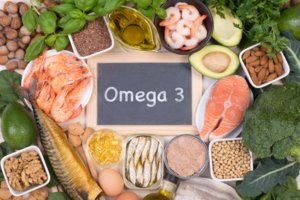 Cardiovascular diseases account for more deaths than anything else. Still, there is a lot of discussion about the diet and its impact on cardiovascular health, typically when it comes to the question of avoiding fat and choosing margarine instead of butter. A team of Czech scientists decided to study diet habits among different populations and compare these with the risk of cardiovascular disease and premature death. Their study shows that there is no need to be afraid of cholesterol. In fact, the official dietary guidelines could easily do with an adjustment. At the same time, it is important to reduce our intake of carbohydrates and omega-6 fatty acids that are the real culprits. Finally, it is essential to increase the intake of omega-3.
Cardiovascular diseases account for more deaths than anything else. Still, there is a lot of discussion about the diet and its impact on cardiovascular health, typically when it comes to the question of avoiding fat and choosing margarine instead of butter. A team of Czech scientists decided to study diet habits among different populations and compare these with the risk of cardiovascular disease and premature death. Their study shows that there is no need to be afraid of cholesterol. In fact, the official dietary guidelines could easily do with an adjustment. At the same time, it is important to reduce our intake of carbohydrates and omega-6 fatty acids that are the real culprits. Finally, it is essential to increase the intake of omega-3.







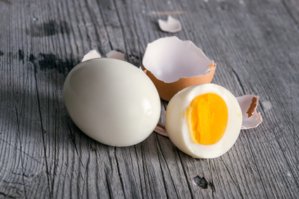 A new Chinese study that is published in the science journal, Heart, shows that eating an egg every day can lower your risk of stroke by 26 percent. The reason is that eggs contain
A new Chinese study that is published in the science journal, Heart, shows that eating an egg every day can lower your risk of stroke by 26 percent. The reason is that eggs contain 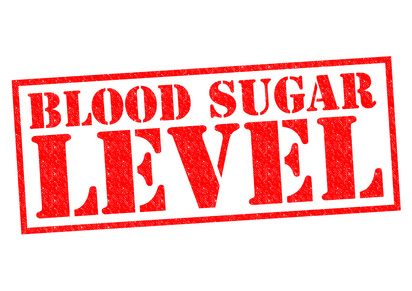 The mineral chromium is found in various forms. Hexavalent chromium is used for industrial purposes such as chrome plating, tanning of hides, dyes, wood protection etc. This form of chromium is toxic and may cause contact dermatitis and certain cancer forms. Trivalent chromium, on the other hand, is found in biological matter such as plants and animals and is an essential nutrient. As the body's need for chromium is rather small, this nutrient is characterised as a trace element. The body stores around 4-6 mg of chromium.
The mineral chromium is found in various forms. Hexavalent chromium is used for industrial purposes such as chrome plating, tanning of hides, dyes, wood protection etc. This form of chromium is toxic and may cause contact dermatitis and certain cancer forms. Trivalent chromium, on the other hand, is found in biological matter such as plants and animals and is an essential nutrient. As the body's need for chromium is rather small, this nutrient is characterised as a trace element. The body stores around 4-6 mg of chromium.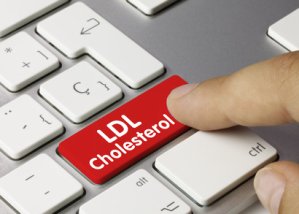 Medical science has claimed for decades that elevated cholesterol levels pose a health threat, especially if you have too much of the so-called “bad” cholesterol – or LDL (Low-Density Lipoprotein). However, a team of international experts is now arguing that this theory is exaggerated. In fact, the experts specifically advise against taking cholesterol-lowering statins. Meanwhile, science is focused on how to improve the safety of statins by combining them with supplements of
Medical science has claimed for decades that elevated cholesterol levels pose a health threat, especially if you have too much of the so-called “bad” cholesterol – or LDL (Low-Density Lipoprotein). However, a team of international experts is now arguing that this theory is exaggerated. In fact, the experts specifically advise against taking cholesterol-lowering statins. Meanwhile, science is focused on how to improve the safety of statins by combining them with supplements of 
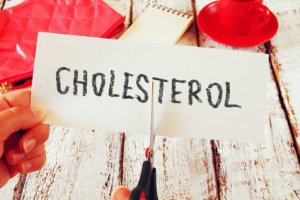 It has been discussed whether it is
It has been discussed whether it is  "After about one week of taking the Q10 supplement I could feel a huge difference," says 23-year old Alan Piccini, who has been suffering from extreme fatigue and muscle aches ever since he was a child.
"After about one week of taking the Q10 supplement I could feel a huge difference," says 23-year old Alan Piccini, who has been suffering from extreme fatigue and muscle aches ever since he was a child. “Taking capsules with co-enzyme Q10 has freed me of the severe side effects of my cholesterol lowering medicine,” Mrs Franken explains.
“Taking capsules with co-enzyme Q10 has freed me of the severe side effects of my cholesterol lowering medicine,” Mrs Franken explains.